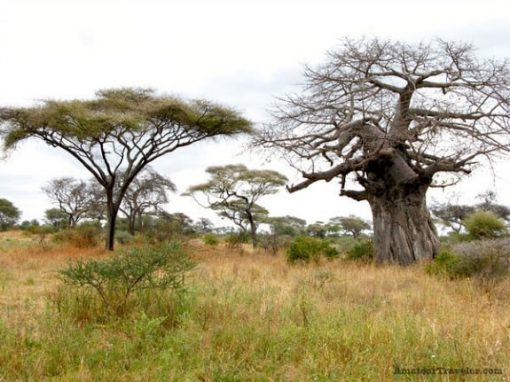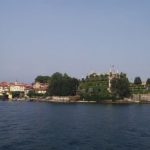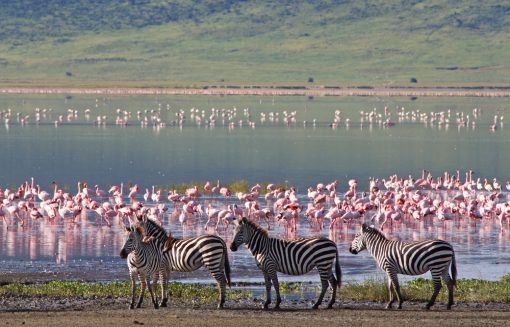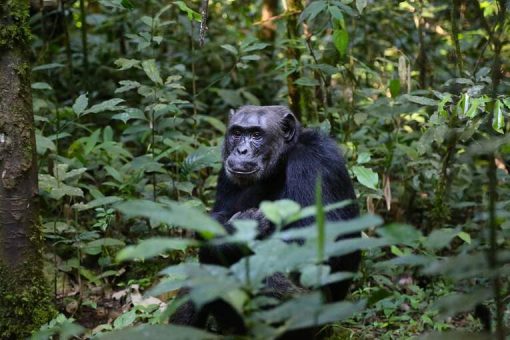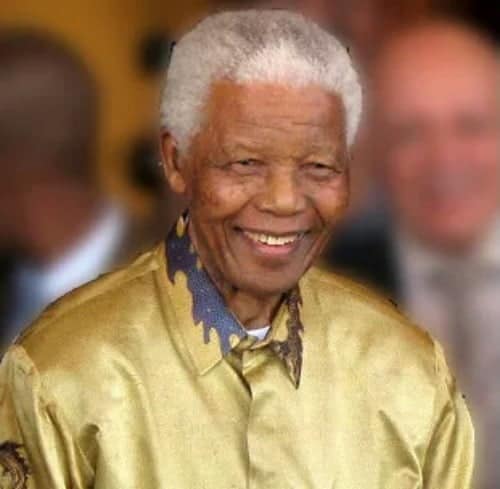That was the first word of Swahili that Rick learned. As he walked through the crowded marketplace people looked at him and smiled, then they would point in the direction that the other nine of us went and say one word, “wazungu”: white people.
Arusha in Northern Tanzania is no stranger to tourists. Many tourists come through the city every year on their way to the famous game parks of Northern Tanzania: Ngorogoro Crater, Lake Manyara, Tarangire (in photo above) and, of course, Serengeti. But tourists mostly stayed in the center of town in comfortable hotels and did not venture out here past where the pavement stops.
In the center of town it is easy to meet locals, they are all over the place and they want to sell you something. They desperately want to sell you something. They circle around the ATM machines and tour buses and will gladly sell you their artwork or their crafts in exchange for your new shilingi. They drive a hard bargain and assume “no” means you want to negotiate more, not that you are not interested. Spend an afternoon in downtown Arusha and you get a new found appreciation for what it feels like to be the weakest antelope in the herd.
But we had come further out of the downtown than most tourists range. The ten of us and our bus driver had visited a local hospital run by the Lutheran church. On the way back from the hospital as we bumped and rattled down the dirt road (“you should have seen them before they fixed them after the last rains”) we stopped at a local market. Rick went with the bus as it parked and the other nine of us dispersed into the crowd.
By dispersed, I mean I headed one way and eight other people followed. I was the only one who had studied any swahili at all and I was also the one who could probably find the way back. Granted most of my swahili was contained in the phrase “ninasema kiswahili kidogo” which means “I speak a little Swahili”. That phrase won’t get you very far in a conversation, but it did prove to be a great source of amusement with the locals we met. People would light up with surprise and wonder — like they found out that your dog could talk. When your dog can talk no one criticizes it for having a small vocabulary.
Wazungu. White people. It was trivial for Rick to track us. We did not blend in. But this was very different from being downtown. This was not where the tourists shopped. For one thing the prices here were what the locals pay for things. And in a country where school teachers make 3 U.S. dollars a day, that is not that much. For another, even though we stood out more we made less of an impact on the rhythm of the place. People smiled or stared but they went on with their buying and selling as they always did.
Here a man was selling brightly colored cloth. These pieces of cloth were seconds. Something was not quite right in each of them, which made them cheap enough to sell out here. Over there a woman was buying the corn flour she would use to make tonight’s ugali, the ubiquitous porridge-like base for many a meal in East Africa. Some vendors had stalls, like the man selling furniture, but many just had their goods on blankets or tarps on the ground. A group of men played home made drums nearby that provided the soundtrack. It seems to be difficult to gather a group of three or more Tanzanians without producing music of some sort, and probably, and inexplicably, music in 4 part harmony.
One man called to me, “come taste Africa”. He was selling sugar cane. One small 100 shilingi coin (about a twelfth of a U.S. Dollar) would buy a piece long enough for five of us to have a piece a bit wider than my fist. But there were nine of us and I only had one coin that was that small. The man shrugged when we could not come up with another coin and gave us a second piece for free. Something was very different out here where the tourists don’t normally go. The man demonstrated to us another Swahili word. In Swahili the word for strangers is “mgeni”, which is also the word for guests.
Photo credit: Courtesy of Chris Christensen
Guest author bio: By night Chris Christensen runs a popular travel blog and podcast at AmateurTraveler.com. Amateur Traveler includes a weekly audio podcast, a video podcast, and a blog. Oxford University uses Amateur Traveler to help teach English as a Second Language. By day Chris works at a local internet company. He has run online websites and communities for companies such as TripAdvisor, eBay, HBO, TV Guide, American Express, the NBA, and Microsoft.
You might also enjoy
The Travelers Way occasionally accepts guest posts from fellow travel bloggers, friends within the travel industry, and as advertorial content.
